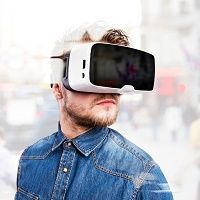- Revenue Cycle Management
- COVID-19
- Reimbursement
- Diabetes Awareness Month
- Risk Management
- Patient Retention
- Staffing
- Medical Economics® 100th Anniversary
- Coding and documentation
- Business of Endocrinology
- Telehealth
- Physicians Financial News
- Cybersecurity
- Cardiovascular Clinical Consult
- Locum Tenens, brought to you by LocumLife®
- Weight Management
- Business of Women's Health
- Practice Efficiency
- Finance and Wealth
- EHRs
- Remote Patient Monitoring
- Sponsored Webinars
- Medical Technology
- Billing and collections
- Acute Pain Management
- Exclusive Content
- Value-based Care
- Business of Pediatrics
- Concierge Medicine 2.0 by Castle Connolly Private Health Partners
- Practice Growth
- Concierge Medicine
- Business of Cardiology
- Implementing the Topcon Ocular Telehealth Platform
- Malpractice
- Influenza
- Sexual Health
- Chronic Conditions
- Technology
- Legal and Policy
- Money
- Opinion
- Vaccines
- Practice Management
- Patient Relations
- Careers
Opportunities for Augmented Reality and Virtual Reality in Medicine
Augmented reality and virtual reality have the potential to revolutionize many parts of the healthcare industry. Whether and how the technologies will do so remains an open question.

According to research and consulting firm IndustryARC, augmented and virtual reality in healthcare is predicted to generate $2.54 billion globally by 2020. Augmented reality is a mix of the real and virtual worlds, like Project X-Ray. With virtual reality, the entirety of the experience is digital. In healthcare, the two areas these technologies will be most utilized are training and rehabilitation
However, almost every medical domain will have applications and opportunities to use AR/VR to diagnose and treat diseases. Here's how it will change how surgeons work and train.
Here is how medical students will be taught and tested.
Here is how it is being used in behavioral and mental health.
The industry has taken notice and has devolved into particular sub-segments.
AR/VR is but one aspect of digital health, i.e., using information and communications technologies to exchange medical information. Like telemedicine, remote sensing, and big data, the challenge will be to validate what works and what does not, train doctors and patients in the use of these technologies, and overcome the barriers to adoption and penetration.
Medical educators will need education and training in teaching with technologies like these. As of now, we are hypothesizing that VR will result in better outcomes and demonstrated competencies for less cost. That hypothesis needs to be validated. Right now, medical school administrators and department heads think that anyone can teach and there is no need to compensate them to do so, much less measure the results. I also don't see medical schools passing through any savings to students in the form of tuition reduction. Like medtech, there is no Moore's Law in medical education.
Strap on your headset. We are in for a rocky ride. The images might not be real, but the barriers to use sure are.
